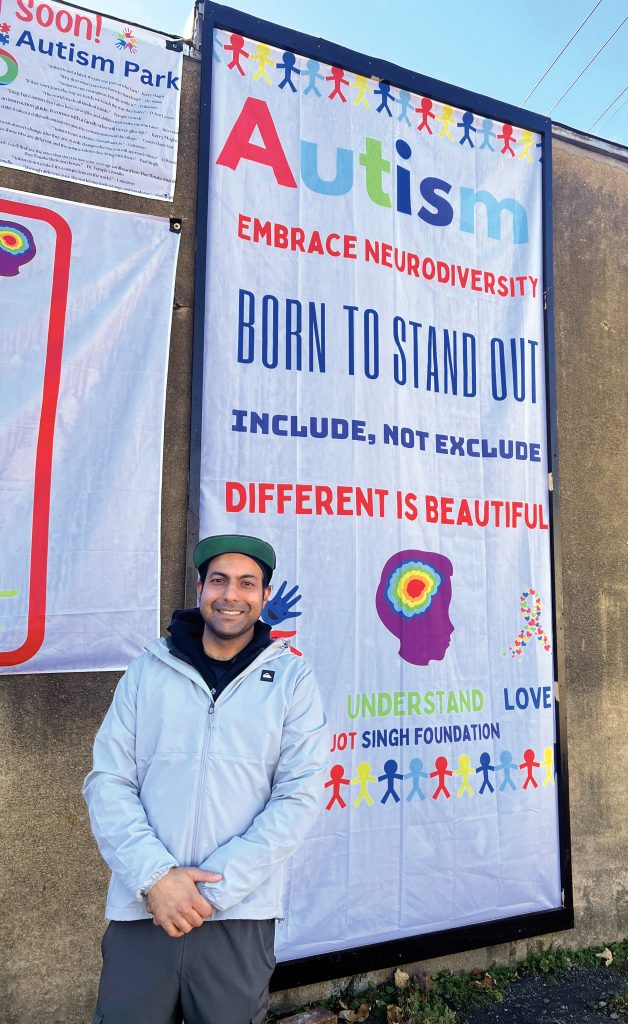
Milford Businessman Plans Free Autism Park for Area Residents
By TARA BARNWELL
MILFORD
Paul Singh has a vision for Milford.
“I want to bring people to the four corners of Milford. I want to add beauty to the Village of Milford,” he said.
Part of Singh’s vision is a park that will be geared toward kids with autism.
“The four corners of Milford will soon be home to an autism park. This green space will be an attractive addition to the area, where it’s only been a rundown lot for the last 20 years,” Singh said. “It will be a full autism awareness park with features for autistic kids. This will be the first one in the country that will be free. And the entire public is invited, not just those families with an autistic member.”
Singh’s motivation to build this park is his autistic child.
“We really struggled at first, after my son was diagnosed. This is such a small community, and we had no resources. This is what inspires me. I wanted to have a place where young parents with an autistic child can come together in a safe space to share ideas, act as a support group, and to not feel alone,” he said. “We need to look after each other.”
Autism can carry a stigma, and Singh wants to bring awareness.
“I want people to embrace neurodiversity [the natural differences in how people’s brains work and the ways in which people perceive and respond to the world]. Some autistic people are fully functional, some are low functioning, just as it is with people that are not autistic,” he said.
Building a park doesn’t mean simply installing some sod and a swing set.
“We’ll be working with engineers and other specialized industries. The Village of Milford’s Zoning Office has already been very helpful,” Singh explained. “I will be responsible for all expenses, from property taxes to maintenance and everything in between; it will all be funded by me, but it’s a win-win for the entire community.”
According to Singh, this project has mostly been met with exuberance, but there have been some naysayers.
“Ninety-eight percent of the people are in favor of this project. They are the silent majority,” Singh said. “But it’s that 2 percent that are against it that I don’t feel truly understand what I am doing. I believe they are really against the signage on the property, but I went through the proper channels to get the signs approved. I could build retail space and fit three new businesses in the space, but that’s not what it’s all about. It’s not about the money. It’s about making a difference in the lives of those with autism.”
A number of popular parks and resorts have instituted autism-friendly features, including LEGOLAND, Sesame Place and Six Flags Theme Parks. Inclusive playgrounds are considered good places to practice social skills and balancing, to learn how the body reacts to height and speed, and for autistic children to experience how the body relates to the space around it.
Playworld, a company that specializes in building playgrounds, says, “Inclusive design is the way forward for tomorrow’s communities. Design that lifts the experience of play for all, equitably offering the value of play and normalizing diversity and varying abilities.”
A typical playground in which autistic children can thrive includes a safe, sturdy fence, a wide range of balancing activities with different heights, widths and motion that allow children to experiment, a variety of sensory activities, and a quiet zone where children can calm down if they become overstimulated.
“I am so thankful to this community for embracing us as a family—a family that not only comes from other states but from other countries,” Singh said. “This park is a good way to give back to the community that gave everything to us.”
Phase one of Singh’s playground project is anticipated to begin in fall 2025.

